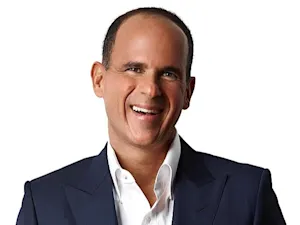
Epstein's Dirty Millions Are Back — And His Victims Are Furious
Jeffery Epstein's mug shot in 2006. Photo courtesy of Palm Beach County Sheriff's Department. Public domain.
Jeffrey Epstein's name continues to make headlines years after his death, and this time, it's all about money. His estate, once drained by settlements to survivors of his abuse, has unexpectedly grown again — sparking outrage and raising new legal and ethical questions. So, what's happening, and who stands to benefit?
Who Was Jeffrey Epstein?
Jeffrey Epstein was a financier and convicted sex offender who built his fortune through a mix of investment management and high-profile connections. He was accused of orchestrating a vast human trafficking network that involved the sexual abuse of underage girls. Epstein was arrested in 2019 on federal sex trafficking charges but died in his jail cell later that year in what was officially ruled a suicide. His death ignited widespread speculation and conspiracy theories, given his close ties to powerful figures in politics, business, and entertainment.
A Shocking Financial Comeback
At its peak, Epstein's fortune was estimated at more than $600 million. After his death in 2019, the estate paid out over $164 million to nearly 200 survivors of his crimes. Additional settlements — including a $105 million payout to the government of the U.S. Virgin Islands — seemed to drain the once-massive fortune, leaving it at an estimated $40 million at one point.
However, in an unexpected twist, Epstein's estate received a staggering $112 million tax refund in late 2024, pushing its total value back up to $145 million. This unexpected windfall has ignited controversy, as many of Epstein's victims have already received their settlements and are unlikely to see any of the newly available funds.
Who Could Get a Payout?
With the estate's resurgence, the question now is: who benefits? The answer is troubling. Two of Epstein's closest business associates, lawyer Darren Indyke and accountant Richard Kahn — both co-executors of his estate — stand to collect a share of the remaining funds. Both men have faced civil allegations of aiding and abetting Epstein's crimes.
Adding to the secrecy, the estate's remaining assets are set to be transferred into the "1953 Trust," named after Epstein's birth year. The full list of beneficiaries remains undisclosed, but one known recipient is Karyna Shuliak, Epstein's last girlfriend. His brother, Mark Epstein, has publicly stated he does not know if he is included, according to the New York Times.
The Victims' Outrage
Understandably, survivors of Epstein's abuse are outraged at the idea that his close associates — and not additional victims — may receive payouts. Marijke Chartouni, one of Epstein's survivors who has already settled, stated that it is "morally objectionable for anyone other than a victim to benefit from acts of injustice and wrongdoing," as reported by the New York Post. Legal experts say that because most claims against the estate have been resolved, there is little recourse for victims who were not part of the earlier settlements.
What Happens Next?
Legal proceedings in the U.S. Virgin Islands will determine the final distribution of Epstein's remaining fortune. Indyke and Kahn, as co-trustees of the 1953 Trust, will play a key role in deciding where the money goes. However, they also remain defendants in a Manhattan federal lawsuit alleging they assisted Epstein's trafficking operations. If they are found liable, it could impact their ability to receive payouts.
For now, the shocking twist in the Epstein estate saga underscores a bitter reality: while financial settlements have provided some restitution to victims, those closest to Epstein may still walk away with millions. The legal battles continue, and the moral questions surrounding this case remain as unsettling as ever.
References: Jeffrey Epstein's Associates Could Reap Benefit of a Big Tax Refund | Jeffrey Epstein Pals Could Get Huge Payout as Estate Swells Back to $145M After Massive Tax Refund | Jeffrey Epstein American financier























